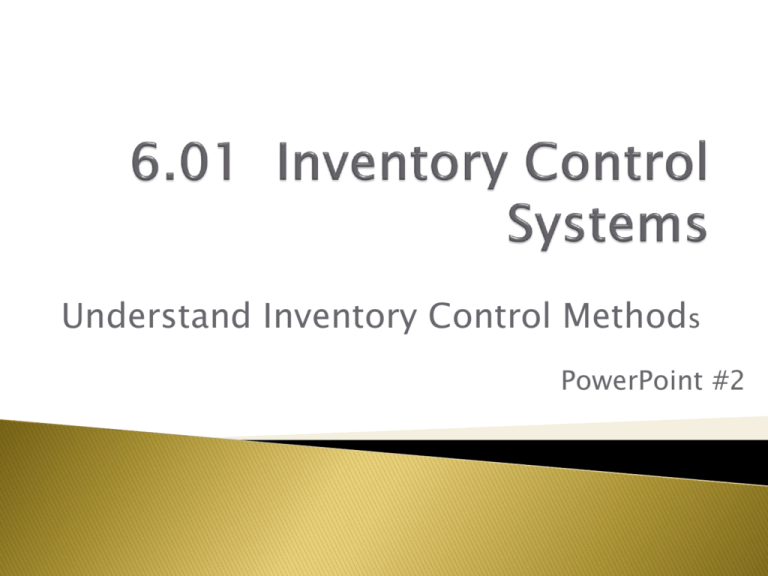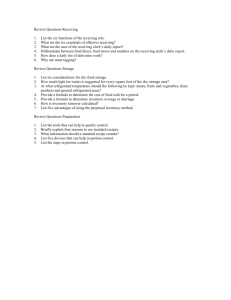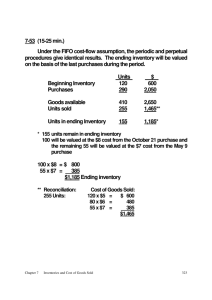Types of Inventory Control Systems
advertisement

Understand Inventory Control Methods PowerPoint #2 Perpetual Inventory System Inventory is continuously updated. Used by a majority of businesses When new merchandise is purchased, the Inventory Account ,not the Purchases Account, is immediately debited. There are two journal entries when goods are sold: The items are immediately removed from the Inventory Account and placed in the Cost of Good Sold Account. The sale is credited to Sales and debited to Cash or Accounts Receivable. A stock record is used to show the type of merchandise, quantity received, quantity sold, and balance on hand. Periodic Inventory System Also called a physical inventory Determined by physically counting, weighing, or measuring items or merchandise on hand As inventory is purchased, it is debited to the Purchases account. Purchases account is shown in the Cost of Goods Sold section Purchases account is closed to the Inventory Account at the end of the year. When merchandise is sold to customers There is only one journal entry. Debit Cash or Accounts Receivable and Credit Sales. No adjustment to Inventory or Cost of Goods Sold is needed. The adjustment will be made at the end of the year. Inventory Records are used to record information for Periodic Inventories. Periodic Inventories are expensive to conduct, especially for businesses with large inventories. Companies that use the Perpetual Inventory system take a Physical Inventory as least once per year. Explain the concept of a Perpetual Inventory system. Explain the concept of a Periodic Inventory system. How does the Perpetual Inventory system differ from the Periodic Inventory system? How are the two systems similar? Why is a Periodic or Physical Inventory necessary, even for Perpetual systems?





